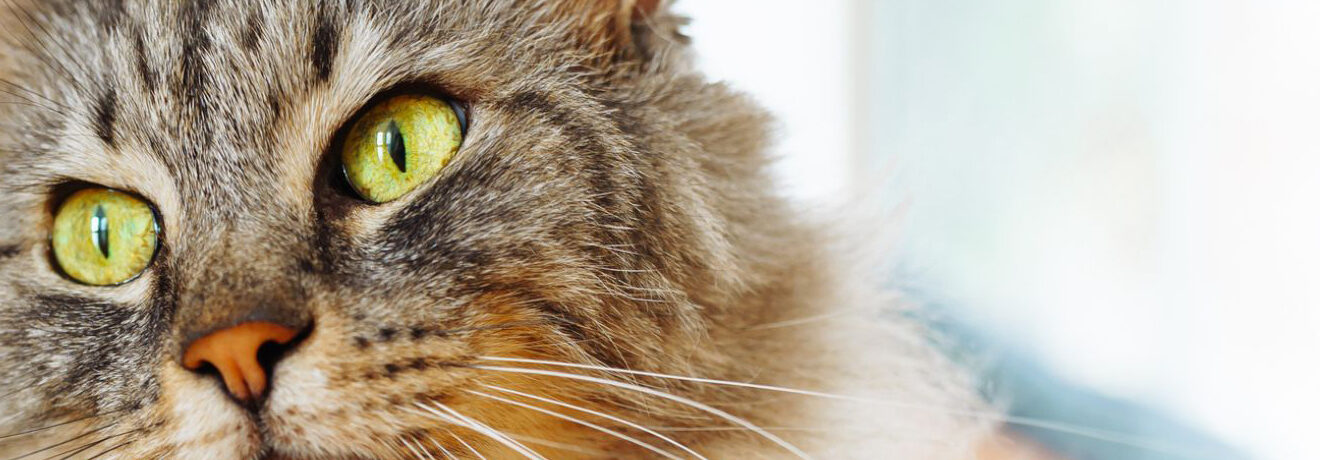Top tips for taking care of the older cat
From about the age of seven onwards, your cat is considered ‘senior’ and requires different nutrients than in the earlier stages of its life.
No one likes getting old. But it’s important that you know how to look after your cat as they do. How does old age affect them? We’ve outlined some of the key ways below. All cats age differently, but there are common things to look out for.
Health issues your cat may develop
Joints: They’re not a kitten anymore! Cats joints get less flexible as they get older, and may develop osteo-arthritis much like people can. General reduction of mobility, and in some cases pain and discomfort in movement can characterize age too.
Coats: Yes, they go grey too. Cats coats can begin to go more white as they grow older, their coat becoming visibly less glossy.
Digestion: This process gets slower as your cat ages, and is less able to process certain ingredients. It’s important to watch out for recurring issues whether it’s constipation, vomiting or diarrhoea, as they may mask other problems.
Change in behaviour: Your cat might start sleeping more, or less, make noises at strange times, and stop interacting with other animals. This is all normal, and to be expected.

Things you can do to help your cat
Hydration: This is essential for cats of any stage of life, but with older cats being less mobile, it’s important to keep a water dish nearby and topped up. It helps keep their kidneys functioning well.
Feeding: Any senior cat’s diet should include specific nutrients, and include ingredients to help with their urinary, mobility and joint health.
The GAIN Elite range is specially formulated to give older cats what they need, and help slow the processes of ageing. It contains cranberries and balanced minerals for urinary care, and Omega-3 and zinc to keep their coat glossy. Browse our available product range here.
Visit the vet regularly: This might seem obvious, but so few senior animals are regularly taken to see their vet. Every six months is good. Cats- especially older ones- will often hide illnesses, and a visit to the vet is the only way to know for sure how healthy they are.
Exercise: On top of everything else, older cats are often reluctant to stay mobile, and need encouragement. You can also consider cat massage if they’re particularly reluctant.
Keep them warm: Comfort matters to older animals. They will likely look for a warm, comfortable space to rest themselves. Make sure this is in a cosy and warm place, with no chills.
Groom them yourself: Yes, they might also need you to brush their hair. Older cats grooming habits start to peter out a bit, so they may also need your help to keep them tidy and clean too. A regular, gentle brushing can be enough to do the trick.

